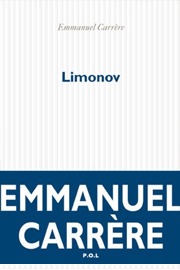Limonov, by Emmanuel Carrère: Review
Who is Eduard Limonov? Your answer will vary considerably depending on which phase in his long and sinuous story you’re familiar with and, perhaps, how categorically the umbra of fascism repels you.
Today in Russia, Limonov, still slim, handsome and charismatic at 71, with his Trotskyite beard and spectacles, is a dissident icon whose opposition to Putin loosely aligns him with certain liberal humanist movements, someone held in such high esteem that Russian Special Forces declared it an honour to arrest him. Back in the 1980s, Limonov was a swaggering literary sensation in Paris and New York, where he spent years as an impoverished, sexually omnivorous hustler and the mischievous butler to a billionaire. But if you read Limonov, Emmanuel Carrère’s captivating biography, you’ll likely find yourself unable to shake the image of Limonov clandestinely taking aim at guests during a UN reception with his employer’s loaded rifle, becoming bosom buddies and brothers-in-arms with Serbian war criminals, or reaching orgasm while nearly strangling his second wife to death.
And who is Carrère? It’s come to my attention that he’s still little known outside of his native France, yet he’s one of that country’s most extraordinary writers, author of the deliciously unsettling novel La Moustache, which Carrère himself later adapted into a very good film. More recently, Carrère’s written a series of books he categorizes as «non-fiction novels»: I Am Alive and You Are Dead, a biography of Philip K. Dick that eloquently conflates the science-fiction author’s life and work; The Adversary, about the murderer and impostor Jean-Claude Romand; My Life as a Russian Novel, about Carrère’s grandfather, a Russian émigré who translated for the Germans during the Second World War; and Lives Other Than My Own, which uses Carrère’s peripheral experience of natural disaster as the foundation for a double-biography of two judges and their struggle to defend the rights of the underprivileged through the manipulation of French credit law. Each of these fuse crisp, detail-laden reportage with first-person interjection or confession, never leaving any doubt as to their author’s perspective. They are also riveting, and Limonov, which won the Prix Renaudot upon its publication in France, is their natural successor.
Radical poet, picaresque adventurer, punk-rock memoirist, «professional revolutionary» and noble zek: the allure of Limonov as subject for biography is straightforward enough. Of course a writer wants to write about a writer who, to such an extraordinary degree, writes his life into being, writing always with audacity, always for maximum drama and dynamism, always working to ensure that he’s at the nucleus of the narrative.
Limonov is superheroically resourceful, at once fiercely loyal and utterly mercenary, a fearsomely devoted lover, an egomaniacal enigma, a weathercock, a man who had to teach himself to take an interest in others as «part of my program in life». It is difficult to determine whether Limonov’s politics are determined by conviction or circumstance, contrarianism and the desire to side with the most unsavoury underdogs — the less genteel the cause, the more thrilling the victory. How seriously do we take the pictures of Charles Manson and Muammar Gaddafi he once hung over his bed, or his volunteering to fight alongside Radovan Karadžic? Carrère describes the moment when Limonov is in Belgrade on a book tour, first learns of the plight of the Slavonia and decides then and there to join the fray since, after all, he’s pushing 50 and hasn’t yet been to war. Did it matter which war? Which side?
Carrère wrote Limonov to reckon with the seemingly unbridgeable gaps between his subject’s incarnations. The writer, who first met Limonov in the ’80s, is transparent about his responses, which alternate between disgust and awe. Regarding Limonov’s first memoir, Diary of a Loser: «What he’s got in his head is ghastly, but you’ve got to admire the honesty with which he unloads it: resentment, envy, class hatred, sadistic fantasies, but no hypocrisy, no embarrassment, no excuses».
The book’s most constant refrain reminds us that «things are always more complicated than they seem», which might sound like an apology for the author’s fascination with a fascist, but any life is more complicated than a cursory summation would have it seem. «His romantic, dangerous life says something», writes Carrère. «Not just about him, Limonov, not just about Russia, but about everything that’s happened since the end of the Second World War». That’s quite a statement, but it’s backed up well, especially in Carrère’s pithily condensed chronicle of the fall of the Soviet Union, and in the way he chronicles the evolution of Limonov’s late persona in accordance with the deepest collective desires and discontent of the Russian people.
Born in the same month of the siege of Stalingrad, Limonov cannot help but seem emblematic. He’s one of his country’s most adaptable creations — by his own design, a hero of his time. Carrère does not resolve Limonov’s contradictions; instead, he tells his story with lucidity, insight, dutiful context and just the right distance.
«National Post», 27 october 2014
 copyleft 2012–2020
copyleft 2012–2020